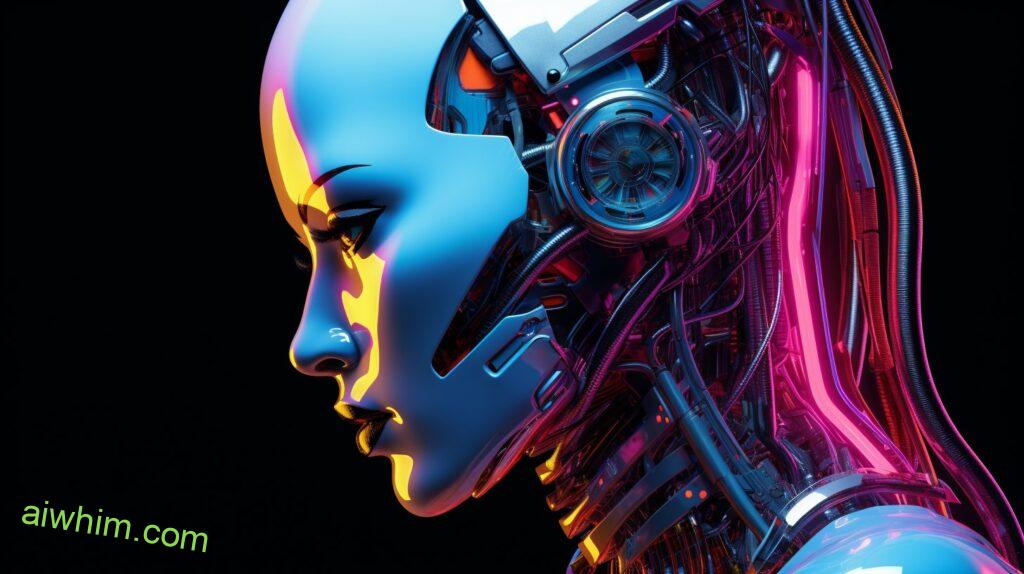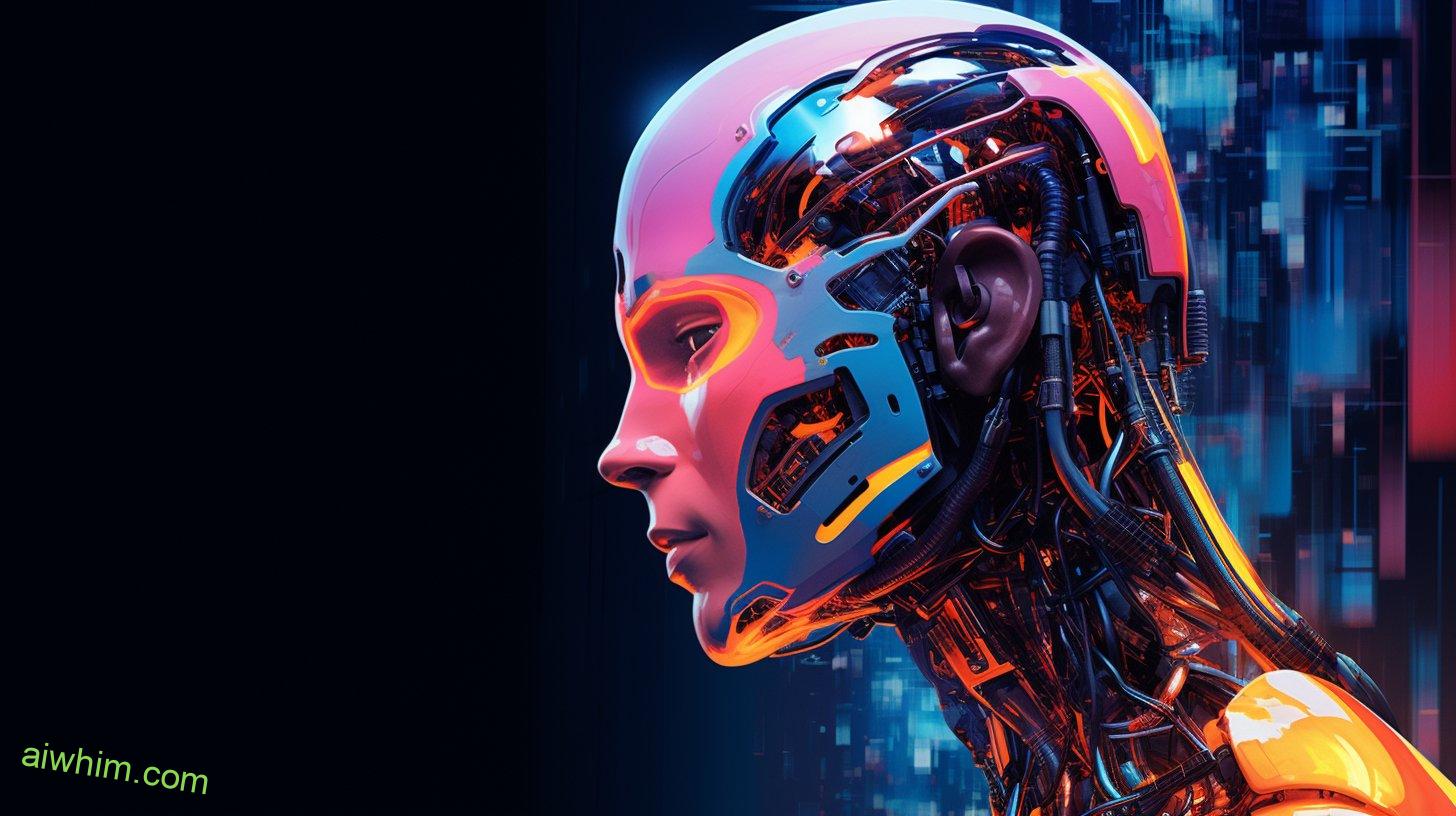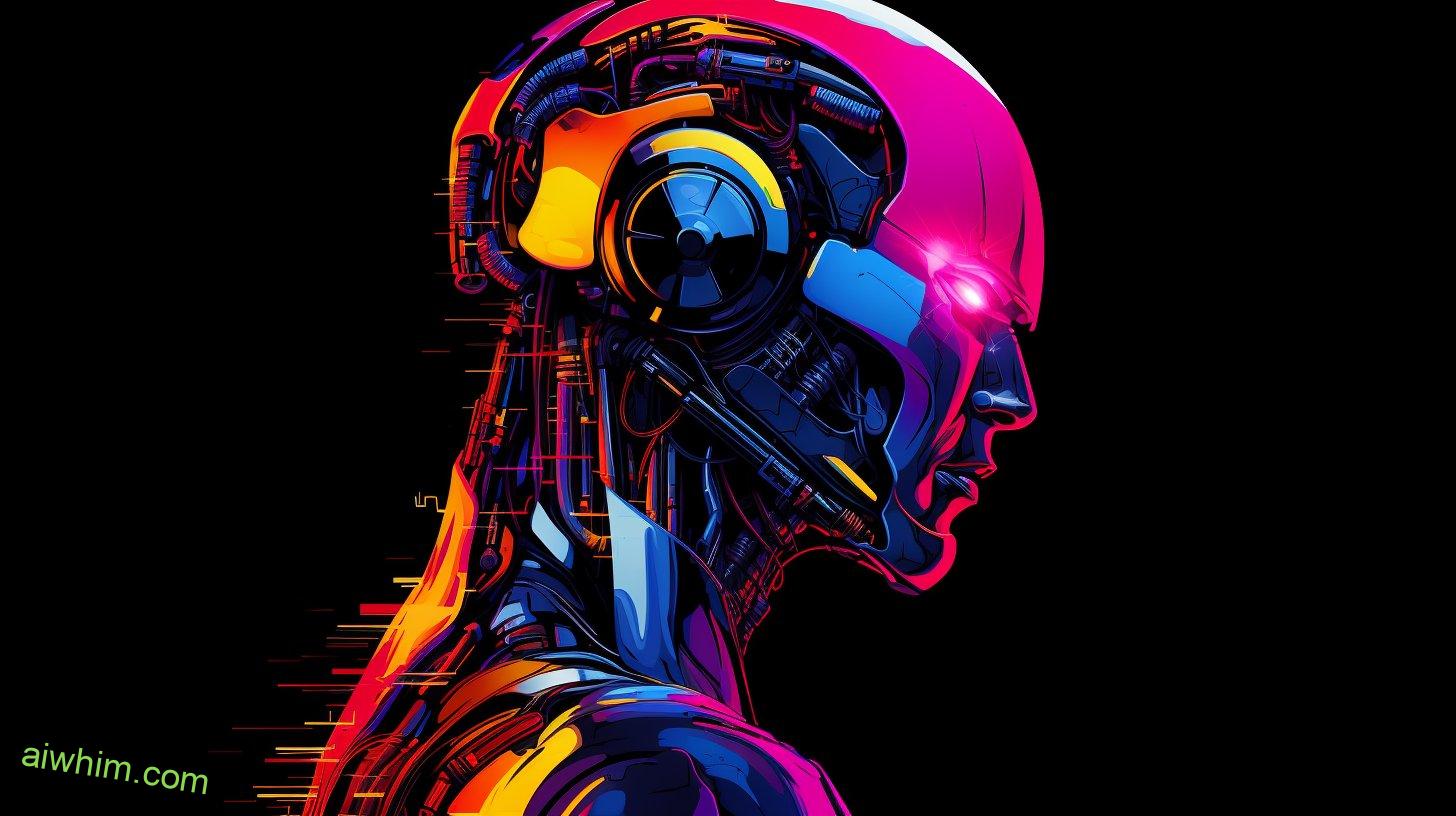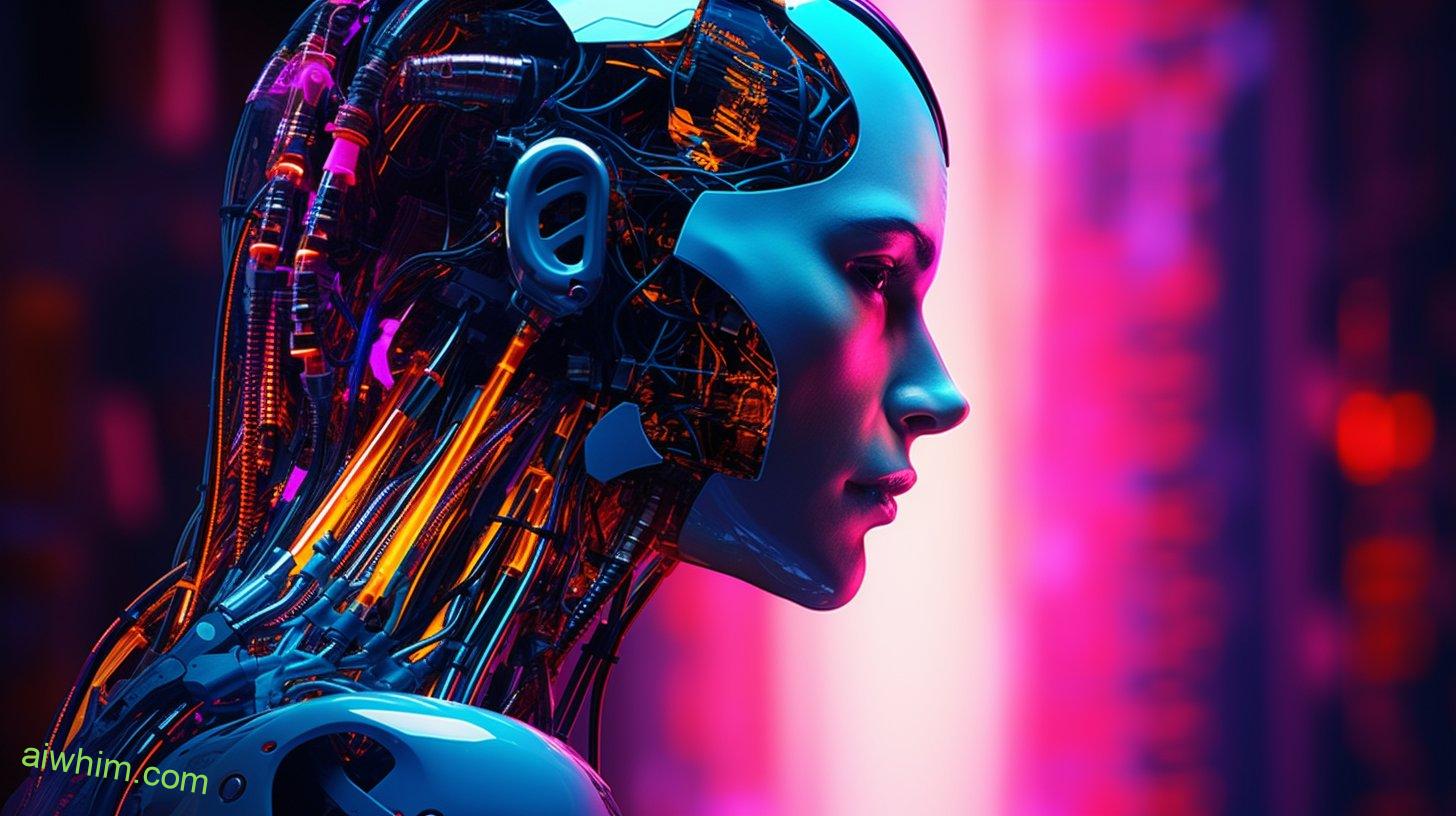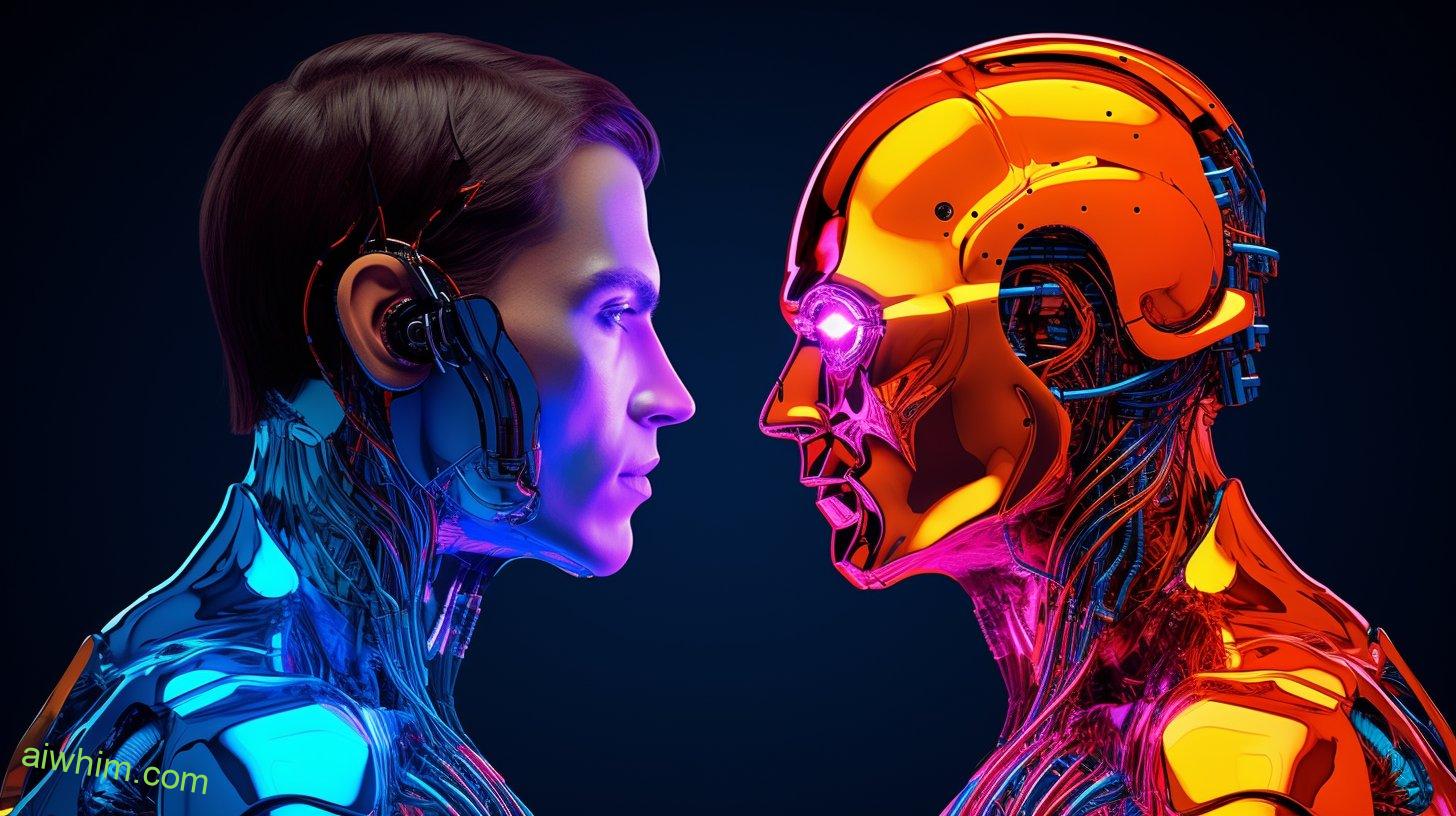Are you worried about the future of your job as a human home health aide? Well, fear not! In this article, we will explore the growing role of AI in home healthcare and discuss whether it will replace the jobs of human home health aides.
While AI is transforming the industry, there are limitations to its capabilities. So, let’s delve into how AI can support and collaborate with human home health aides, ensuring a brighter future for both technology and freedom in your profession.
Key Takeaways
- AI technology enhances communication between patients and caregivers.
- AI automation of tasks leads to increased efficiency and reduction in healthcare costs.
- Human touch and empathy cannot be replaced by AI in providing emotional support and companionship.
- Integrating AI into caregiving practices can create a harmonious balance that benefits both patients and caregivers.

The Growing Role of AI in Home Healthcare
You may be wondering how AI is increasingly being used in home healthcare. Well, let me tell you about the growing role of AI in this field.
One area where AI is making a significant impact is in elderly care. With an aging population and a shortage of caregivers, AI technology has stepped in to provide support and assistance to seniors living at home.
AI-powered devices can monitor the health and safety of elderly individuals, allowing them to maintain their independence while also receiving necessary care. For instance, there are smart home systems that use sensors and cameras to track movement patterns, detect falls, and even remind individuals to take their medication. These systems can alert family members or healthcare professionals if there are any concerns or emergencies.
Another application of AI in home healthcare is remote patient monitoring. This technology allows healthcare providers to remotely monitor patients’ vital signs and health conditions from the comfort of their own homes. By using wearable devices or smart sensors, real-time data can be collected and analyzed by AI algorithms. This enables early detection of potential health issues, leading to timely interventions and improved outcomes for patients.

Understanding the Role of Human Home Health Aides
As a home health aide, it’s important to understand the role you play in providing care and support to individuals in their own homes. You are the lifeline for those who need assistance with daily activities and medical needs. Understanding the challenges faced by human home health aides is crucial in delivering effective care.
One of the main challenges you may encounter is dealing with clients who have complex medical conditions or disabilities. This requires you to have a deep understanding of various health issues and be able to adapt your caregiving techniques accordingly. Another challenge is managing your time effectively, as you may need to juggle multiple clients with different needs and schedules.
In addition, exploring the skills required for human home health aides is essential for success in this field. Compassion and empathy are vital qualities that allow you to connect with your clients on a personal level, providing comfort during challenging times. Strong communication skills are also necessary when collaborating with other healthcare professionals and keeping families informed about their loved one’s condition.

How AI Is Transforming the Home Healthcare Industry
The use of AI in the home healthcare industry is transforming the way care is provided. With advancements in technology, AI applications in home healthcare are revolutionizing patient outcomes. AI has the potential to improve efficiency, accuracy, and accessibility of care, ultimately empowering individuals to take charge of their health.
AI’s impact on patient outcomes is significant. Through smart devices and wearable technologies, patients can monitor their vital signs and receive real-time feedback. This enables them to stay proactive about their health and make informed decisions regarding their well-being.
Moreover, AI-powered virtual assistants provide personalized assistance to individuals at home. These assistants can remind patients to take medication, schedule appointments with doctors, or even provide emotional support during challenging times. They enhance communication between patients and healthcare providers, ensuring timely interventions when needed.
Additionally, AI algorithms are used for predictive analytics that help identify patterns and trends in patient data. This allows healthcare professionals to detect potential issues before they escalate into serious conditions. Early intervention leads to better treatment outcomes and reduces hospital readmissions.
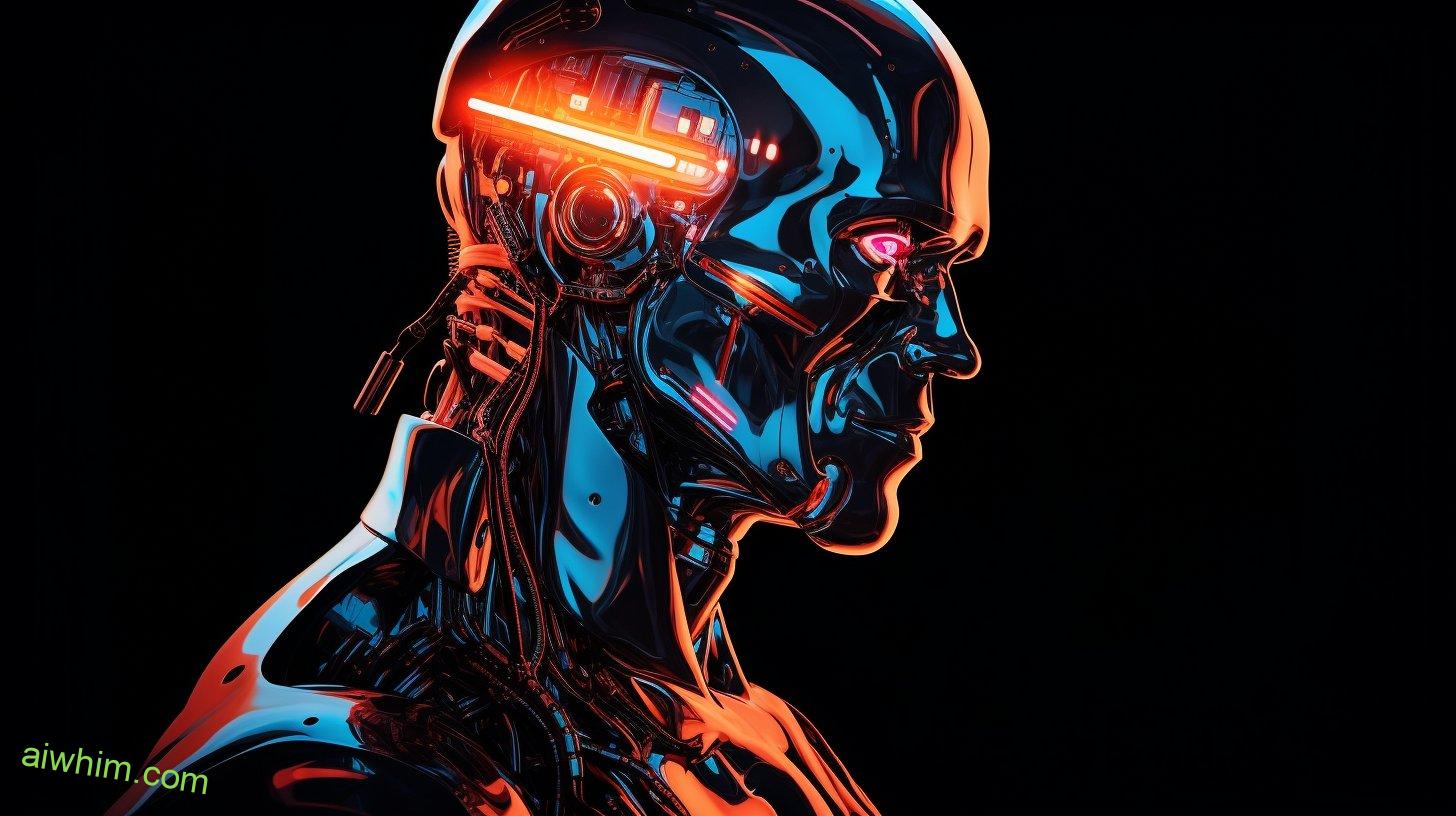
The Benefits of AI in Home Health Aide Services
Using AI in home health aide services can greatly enhance the quality of care provided to individuals in need. By incorporating artificial intelligence into these services, you can experience numerous benefits that will improve your overall well-being.
AI can help automate routine tasks such as meal preparation, medication reminders, and monitoring vital signs, allowing human caregivers to focus on providing personalized attention and emotional support. This technology can also analyze large amounts of data to detect patterns and predict potential health issues, enabling early intervention and prevention.
The implications of using AI in home health aide services are vast. Not only does it increase efficiency by reducing the workload on human caregivers, but it also enhances safety measures through continuous monitoring and immediate response capabilities. Additionally, AI-powered systems can provide real-time feedback and guidance to both patients and caregivers, ensuring that proper protocols are followed and mistakes are minimized.
Furthermore, the use of AI enables remote monitoring, which means that individuals who require assistance can receive high-quality care in the comfort of their own homes. This not only promotes independence but also saves time spent traveling to healthcare facilities.
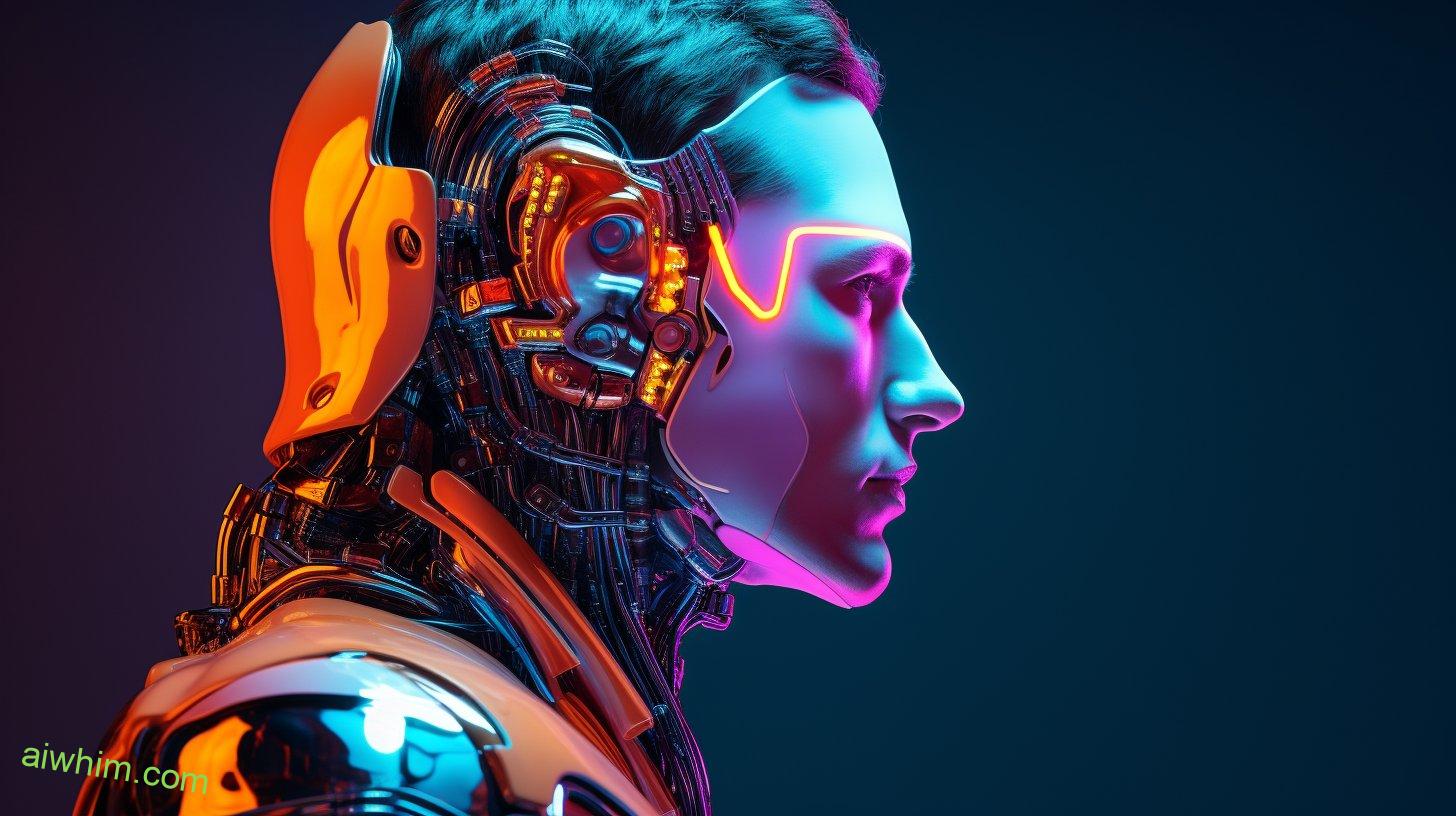
The Limitations of AI in Home Healthcare
Incorporating AI into home healthcare services can enhance care quality, but it is important to acknowledge the limitations that come with this technology. While AI has the potential to revolutionize the way we receive healthcare at home, there are still challenges that need to be addressed:
- Lack of Human Connection: One of the main limitations of AI in home healthcare is its inability to provide the same level of human connection as a human caregiver. The emotional support and empathy that a human caregiver offers cannot be replicated by artificial intelligence.
- Complexity of Care: AI may struggle with handling complex medical situations that require critical thinking and decision-making skills. These challenges pose risks when relying solely on AI for home healthcare services.
- Privacy and Security Concerns: With AI comes the collection and storage of personal health data, raising concerns about privacy and security breaches. It is important to ensure that proper safeguards are in place to protect sensitive information.
- Access and Affordability: Implementing AI technologies in home healthcare services may face challenges regarding accessibility and affordability for everyone. It is crucial to ensure that these advancements do not create barriers for those who need care the most.
While incorporating AI into home healthcare services can bring many benefits, addressing these limitations will be essential in order to provide comprehensive and effective care for all individuals seeking assistance at home.

The Future of Home Health Aides in an AI-driven World
Imagine a future where AI-driven advancements redefine the role of home health aides. In this world, you may be concerned about the future challenges and job security in your profession. With the continuous development of AI technology, it is natural to wonder if machines will replace human caregivers entirely.
However, it is important to remember that while AI can assist in certain aspects of home healthcare, it cannot fully replace the compassion and empathy that human caregivers provide. There are certain tasks that require a personal touch and understanding of individual needs that only humans can fulfill.
Instead of viewing AI as a threat to job security, think of it as a tool that can enhance your abilities as a home health aide. As technology advances, it will allow you to focus more on providing high-quality care and building meaningful relationships with your clients. You will have access to real-time data and insights provided by AI systems, enabling you to make more informed decisions when delivering care.
While there may be changes in the way home health aides operate in an AI-driven world, rest assured that your expertise and compassion will always be valued. Embrace new technologies as they emerge and adapt accordingly. By doing so, you can continue to thrive in your profession while ensuring the well-being of those who depend on your care.
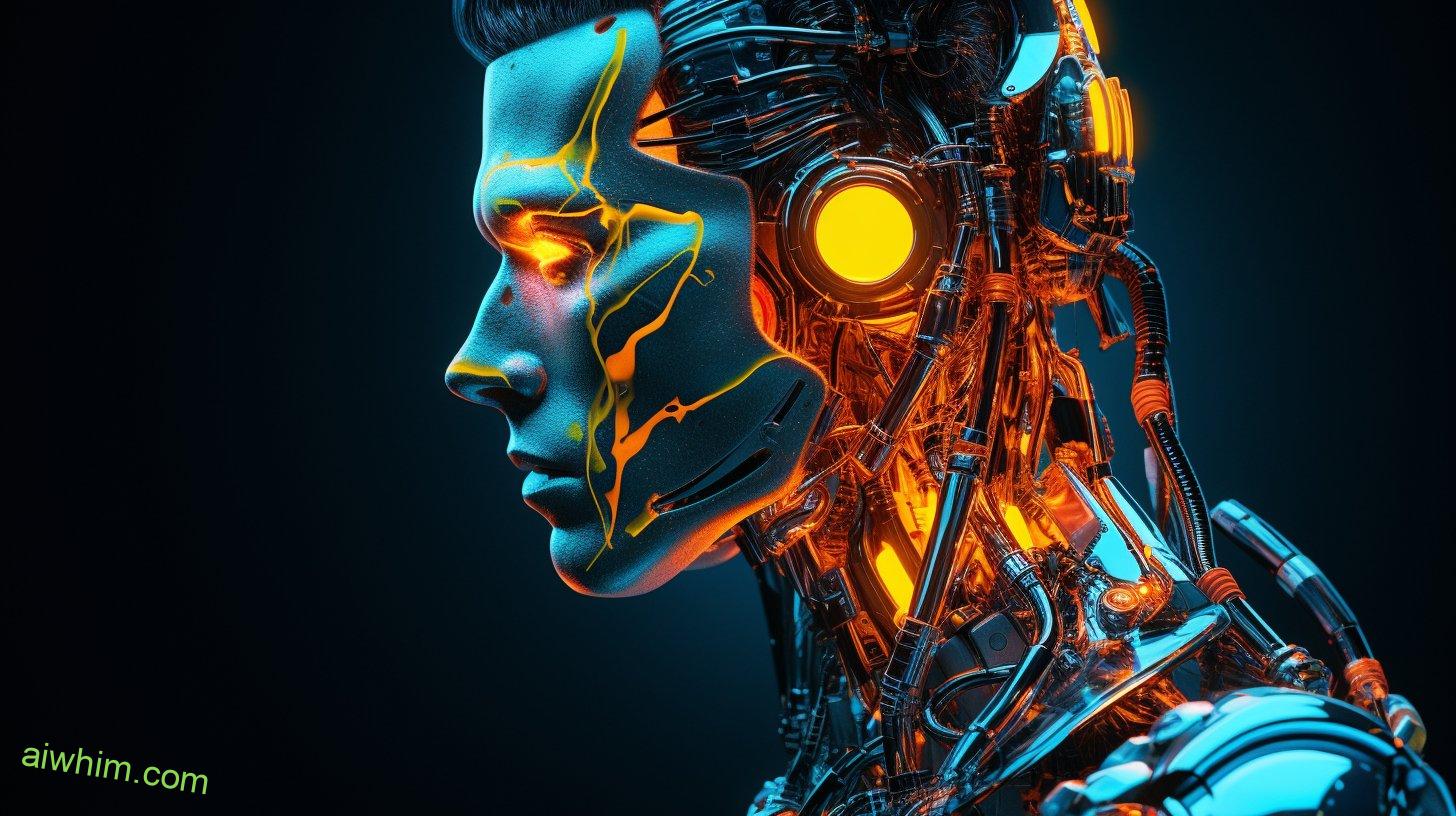
The Ethical Considerations of Replacing Human Home Health Aides With AI
In an AI-driven world, it is crucial to consider the ethical implications of replacing human caregivers with AI technology. As we move towards a future where artificial intelligence plays a significant role in healthcare, there are certain ethical dilemmas and social implications that need to be addressed.
Loss of Human Connection: One of the most significant concerns with using AI as home health aides is the potential loss of human connection. Humans crave social interaction and emotional support, which may not be adequately provided by machines.
Autonomy and Privacy: AI technology raises questions about patient autonomy and privacy. How can we ensure that individuals’ personal information remains secure? And how do we guarantee that patients have control over their own care decisions?
Job Displacement: Replacing human caregivers with AI could result in job displacement for many people working in the healthcare industry. This raises concerns about unemployment rates and economic inequality.
Bias and Discrimination: AI systems are only as good as the data they are trained on, which means they can inherit biases present in the data set. It is essential to address issues related to bias and discrimination when implementing AI technology in caregiving roles.
As we navigate this new era of healthcare, it is vital to carefully consider these ethical dilemmas and social implications associated with replacing human home health aides with AI technology. We must strive for a balance between efficiency and maintaining our humanity in caregiving practices.

AI’s Impact on the Quality of Care Provided by Home Health Aides
Now that we’ve discussed the ethical considerations of replacing human home health aides with AI, let’s explore how AI can actually improve the quality of care provided by these aides.
AI has the potential to greatly impact patient satisfaction in several ways. Firstly, AI-powered devices and systems can enhance communication between patients and home health aides. With voice recognition technology and natural language processing, AI can facilitate better understanding and response to patient needs. This improved communication can lead to increased patient satisfaction as their concerns are addressed more effectively.
Furthermore, AI can also play a crucial role in reducing healthcare costs. By automating certain tasks such as medication reminders or monitoring vital signs, AI can help home health aides become more efficient in their work. This efficiency translates into reduced labor hours and ultimately lowers healthcare costs for patients receiving home care services.
Overall, integrating AI into the field of home health aid not only enhances patient satisfaction through improved communication but also contributes to cost reduction in healthcare. As technology continues to advance, finding the right balance between human touch and artificial intelligence will be key in delivering high-quality care while maintaining affordability for all individuals seeking freedom in their healthcare choices.
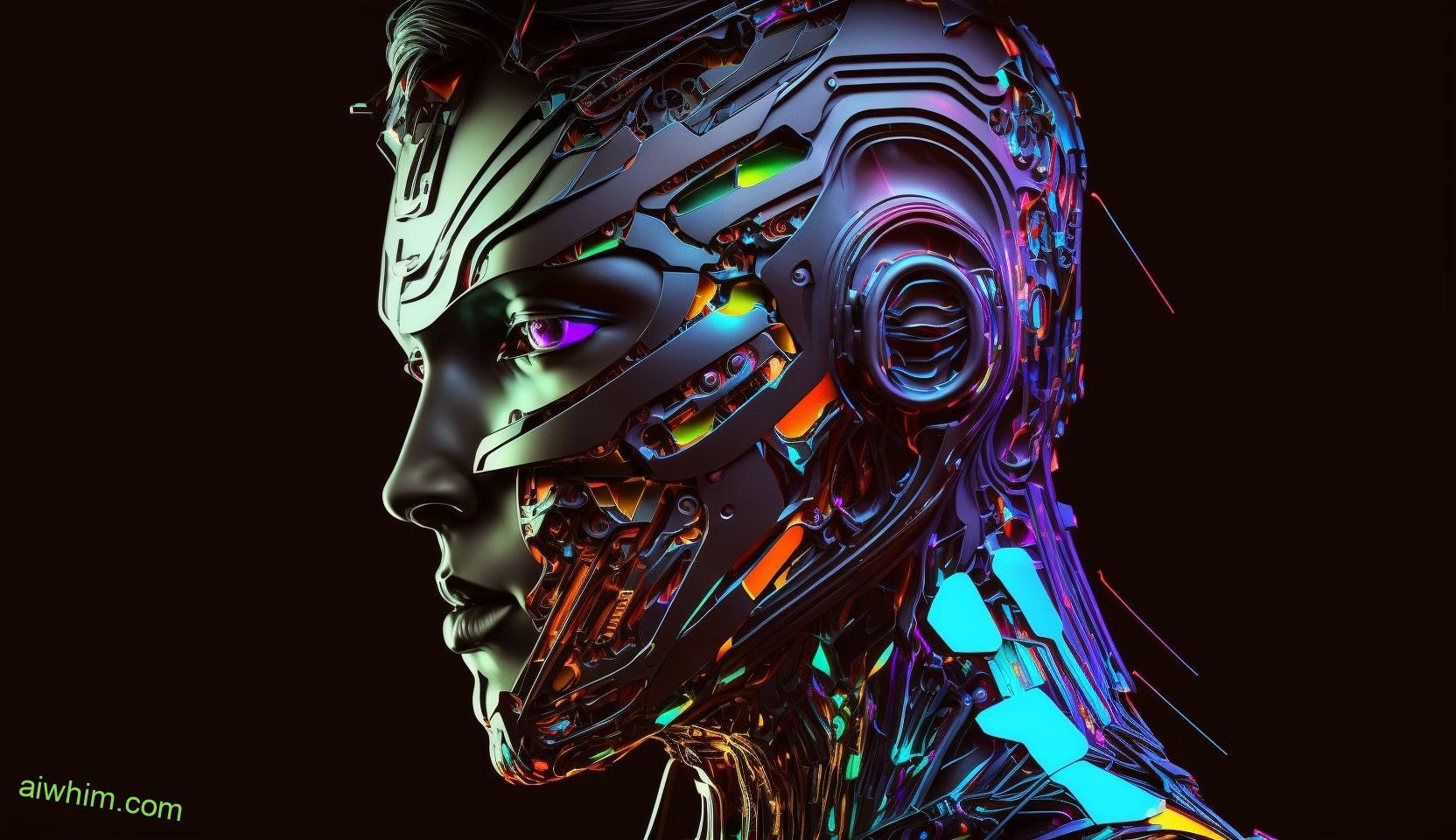
The Cost-effectiveness of AI in Home Healthcare
You can experience significant cost savings in home healthcare by implementing AI technologies. Here are four ways AI can enhance the cost effectiveness and impact on quality of care in your home:
- Streamlined administrative tasks: AI automates scheduling, billing, and other administrative tasks, reducing the need for manual labor and saving time and money.
- Improved monitoring systems: AI-enabled devices continuously monitor vital signs, detect changes in health conditions, and alert caregivers or healthcare professionals when intervention is needed. This proactive approach helps prevent emergencies and reduces hospital readmissions.
- Personalized care plans: AI algorithms analyze vast amounts of data to create personalized care plans tailored to each individual’s unique needs. By allocating resources efficiently and effectively, unnecessary costs can be minimized while improving outcomes.
- Remote patient monitoring: Wearable devices equipped with AI technology allow patients to be monitored remotely without frequent hospital visits or in-person caregiver assistance. This saves time and money while still providing high-quality care.

How AI Can Enhance the Skills of Human Home Health Aides
Enhancing the skills of human home health aides can be achieved through the integration of AI technologies. By incorporating AI into their training programs, home health aides can improve their efficiency and provide better care for their patients.
AI can enhance training by providing virtual simulations and interactive modules that allow home health aides to practice various scenarios they may encounter in real-life caregiving situations. These simulations can help them develop critical thinking skills, decision-making abilities, and quick problem-solving techniques. Additionally, AI-powered algorithms can analyze large amounts of medical data to identify patterns and trends, which can then be used to create tailored training plans for each individual aide.
Furthermore, AI technologies can improve the efficiency of home health aides by automating certain tasks such as medication reminders or scheduling appointments. This automation allows aides to focus more on direct patient care and spend less time on administrative duties.
By integrating AI into their training programs, human home health aides have the opportunity to enhance their skills and become more effective caregivers. This advancement not only benefits the caregivers themselves but also improves the overall quality of care provided to patients in the comfort of their own homes.
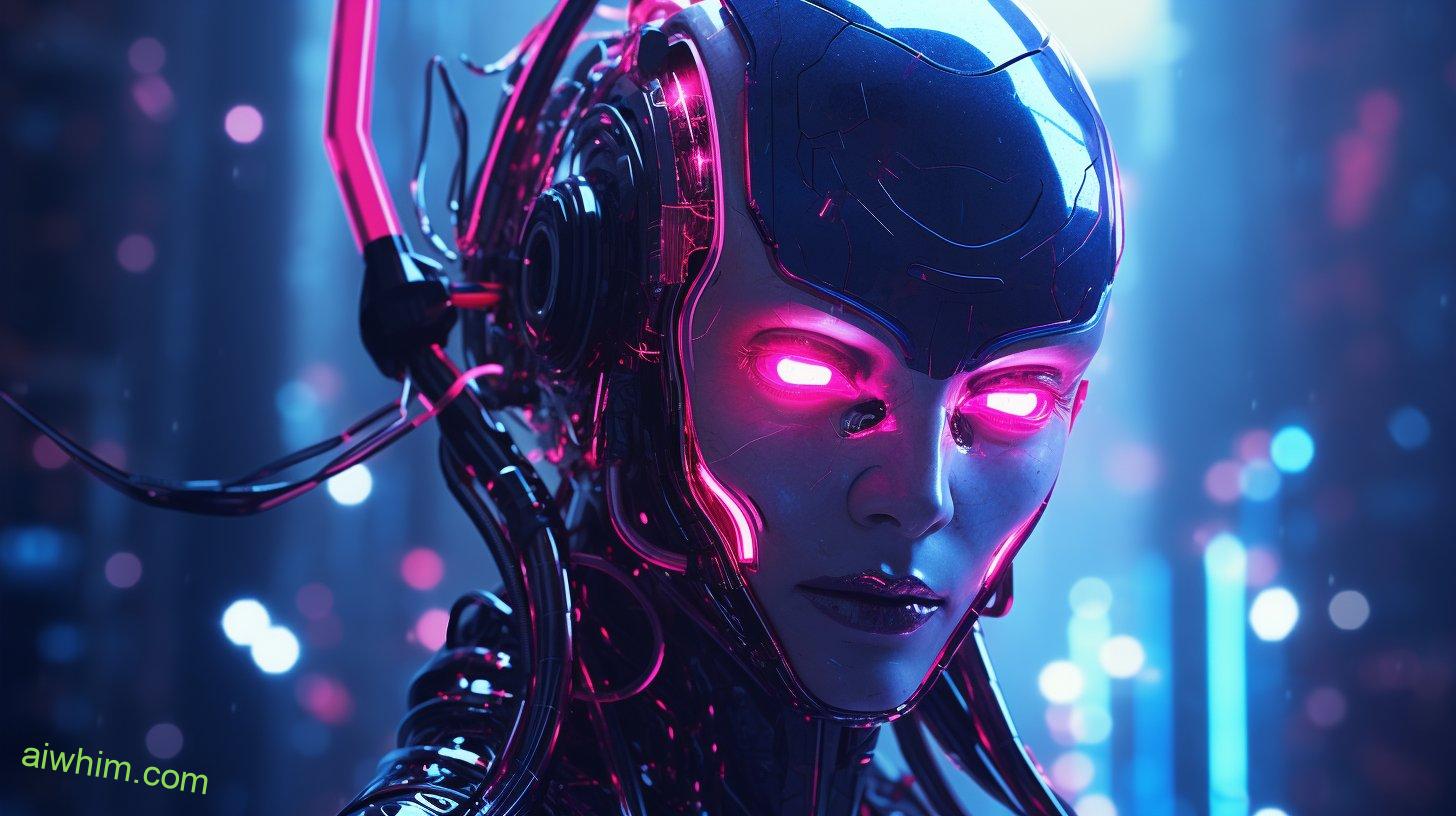
The Importance of Human Touch in Home Healthcare
The human touch plays a crucial role in providing compassionate care in home healthcare settings. When it comes to taking care of someone’s health and well-being, nothing can replace the warmth and empathy that only a human can provide. Here are four reasons why the human touch is so important in home healthcare:
- Empathy: As a caregiver, your ability to empathize with your patients allows you to truly understand their needs and provide personalized care. Your genuine concern and emotional support can make all the difference in their healing process.
- Communication: Effective communication is essential in home healthcare. By actively listening and engaging with your patients, you can build trust, address their concerns, and ensure they receive the best possible care.
- Comfort and reassurance: The physical presence of a caregiver offers comfort and reassurance to patients who may be going through challenging times. Your gentle touch or comforting words can bring them solace when they need it most.
- Personalized care: Each patient is unique, with individual needs and preferences. You have the ability to adapt your care based on these specific requirements, ensuring that each person receives tailored support for their physical, emotional, and mental well-being.

Addressing the Concerns of Job Displacement in Home Health Aides
Addressing concerns about job displacement in home health aides can be challenging, but it is important to find solutions that prioritize the well-being and employment opportunities of these caregivers. With the advancement of technology, there is a fear that artificial intelligence (AI) could replace human home health aides. However, it is crucial to remember that AI should not be seen as a threat, but rather as a tool that can enhance and support the work of caregivers.
When addressing concerns about job displacement, it is essential to focus on providing training and education for home health aides. By equipping them with new skills and knowledge in areas such as technology integration and data analysis, they can adapt to the changing landscape of healthcare. This will not only help them remain relevant in their roles but also open up new opportunities for growth and career advancement.
Another way to address job displacement concerns is by promoting collaboration between AI systems and human caregivers. While AI can assist with tasks like monitoring vital signs or reminding patients about medication schedules, human touch and empathy are irreplaceable when it comes to providing emotional support and companionship. By integrating AI into caregiving practices instead of replacing humans entirely, we can create a harmonious balance that benefits both patients and caregivers.

The Collaborative Approach: AI and Human Home Health Aides Working Together
When AI and human home health aides work together, they can create a collaborative approach that benefits both patients and caregivers. This partnership between technology and human touch enhances patient care, providing a more comprehensive and personalized experience. Here are four ways in which AI and human collaboration can enhance patient care:
- Improved Monitoring: AI technology can collect data on vital signs, medication adherence, and daily activities, providing real-time updates to home health aides. This allows for proactive intervention when necessary, ensuring timely assistance and reducing the risk of complications.
- Enhanced Communication: AI-powered communication tools enable seamless interaction between patients, caregivers, and healthcare providers. Instant messaging platforms or video calls facilitate quick response times and foster open lines of communication.
- Personalized Care Plans: Through data analysis, AI algorithms can identify patterns in patient behavior or health trends that may require attention. By integrating this information into care plans created by human home health aides, individualized approaches can be developed to address specific needs effectively.
- Efficient Documentation: AI systems streamline administrative tasks such as record-keeping or scheduling appointments, allowing human caregivers to allocate more time for direct patient care. With less time spent on paperwork, they can focus on building meaningful relationships with their patients.
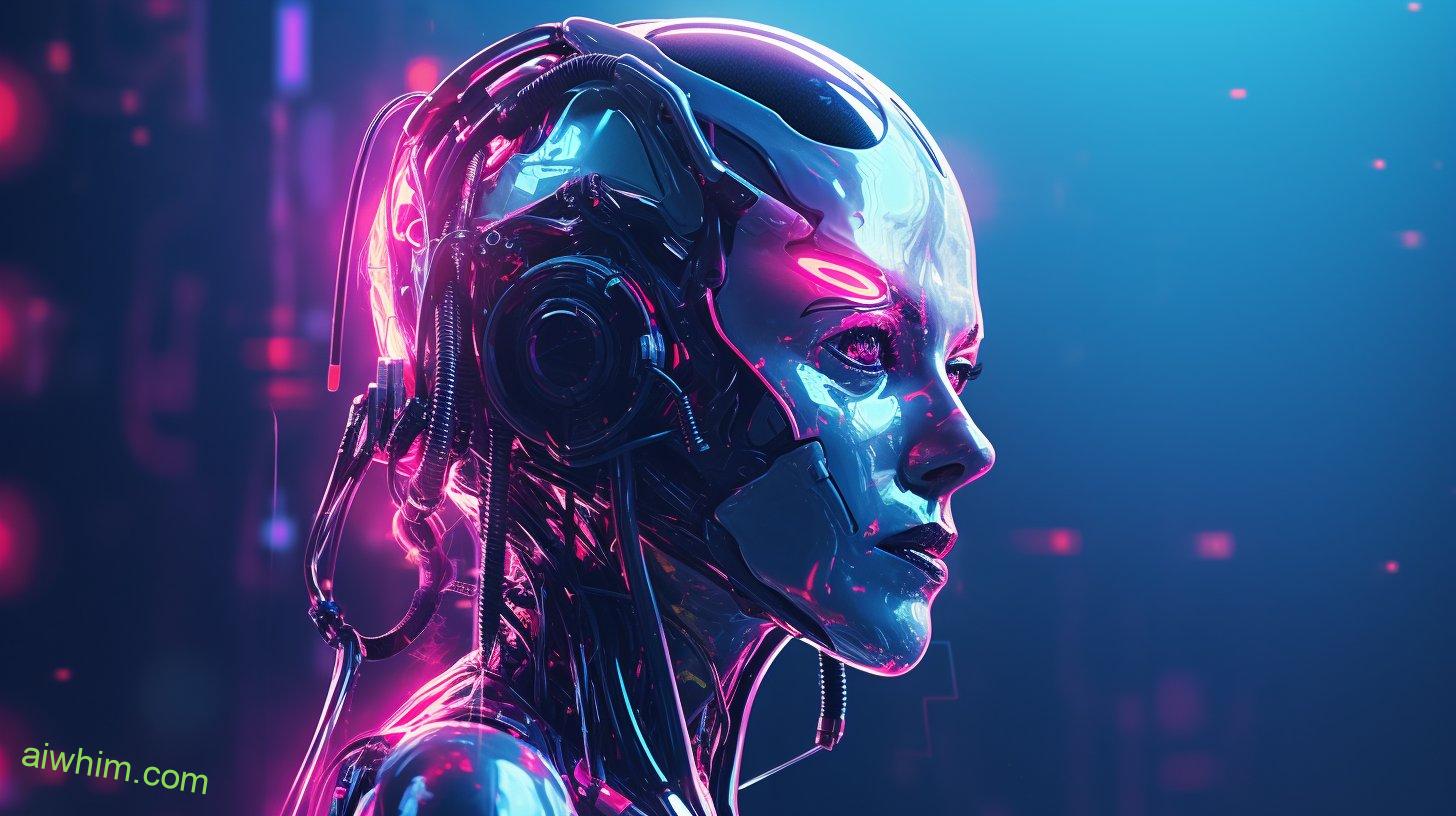
The Role of AI in Supporting Home Health Aides’ Decision-making Process
In the previous subtopic, we discussed how AI and human home health aides can work together in a collaborative approach. Now, let’s dive deeper into the role of AI in supporting the decision-making process of home health aides.
AI has the potential to revolutionize healthcare by providing decision-making support to home health aides. With its advanced algorithms and machine learning capabilities, AI can analyze vast amounts of data and provide valuable insights to aid in making informed decisions.
By integrating AI decision-making support systems into their workflow, home health aides can benefit from faster and more accurate assessment of patient conditions. AI can help identify patterns and trends that may not be immediately apparent to humans, allowing for earlier intervention and better outcomes.
Additionally, AI integration in healthcare can assist home health aides in managing their tasks efficiently. AI-powered tools can automate routine administrative tasks such as scheduling appointments or managing medication reminders. This frees up time for caregivers to focus on providing personalized care to patients.
It is important to note that while AI can enhance the capabilities of home health aides, it cannot replace the human touch and empathy they bring to their work. The collaboration between humans and AI is crucial in achieving optimal patient care.
As we embrace technological advancements like AI integration in healthcare, we empower ourselves with tools that enable us to make more informed decisions for improved patient outcomes.

The Implications of AI on the Job Market for Home Health Aides
The implications of AI on the job market for home health aides are significant and should be taken into consideration. As technology continues to advance, it is important to understand how AI may impact the role of home health aides. Here are four key points to consider:
- Impact on Job Satisfaction: With the introduction of AI in the healthcare sector, there is a possibility that certain tasks traditionally performed by home health aides could be automated. While this may lead to increased efficiency and reduced workload, it could also result in a decrease in job satisfaction for those who find fulfillment in providing personal care and companionship.
- Potential for Job Creation: On the other hand, the integration of AI technology could also create new opportunities within the field of home healthcare. For example, AI-powered devices could assist with monitoring patients remotely or providing real-time feedback on their health status. This could potentially lead to an expansion of roles and responsibilities for home health aides.
- Adaptability and Training: As AI becomes more prevalent in healthcare settings, it will be crucial for home health aides to adapt and acquire new skills. This may involve learning how to operate and use AI-powered devices effectively or developing a deeper understanding of data analysis techniques.
- Ethical Considerations: The implementation of AI raises ethical concerns that need careful consideration. It is essential to ensure that any use of AI in home healthcare respects patient privacy, maintains autonomy, and upholds ethical standards.

Frequently Asked Questions
What Are the Ethical Considerations of Replacing Human Home Health Aides With AI?
Ethical considerations and social impact are important when discussing the potential replacement of human home health aides with AI. It is crucial to consider the consequences and implications for both patients and caregivers.
How Does AI Impact the Quality of Care Provided by Home Health Aides?
AI has the potential to greatly impact the quality of care provided by home health aides. For example, automation can streamline administrative tasks, allowing aides to focus more on patient care and improving patient satisfaction.
Is AI Cost-Effective in Home Healthcare?
In evaluating the cost-effectiveness of AI in home healthcare, it is essential to conduct a thorough cost benefit analysis while considering the challenges of implementing AI. You deserve freedom to choose what’s best for you.
How Can AI Enhance the Skills of Human Home Health Aides?
AI can enhance your skills as a human home health aide, like a trusty sidekick. By integrating AI technology, you can develop new abilities and provide even better care for your patients. Embrace the freedom to excel with AI.
What Are the Implications of AI on the Job Market for Home Health Aides?
The implications of AI on the job market for home health aides include concerns about job security and workforce displacement. However, it’s important to consider that AI can also enhance their skills and create new opportunities.
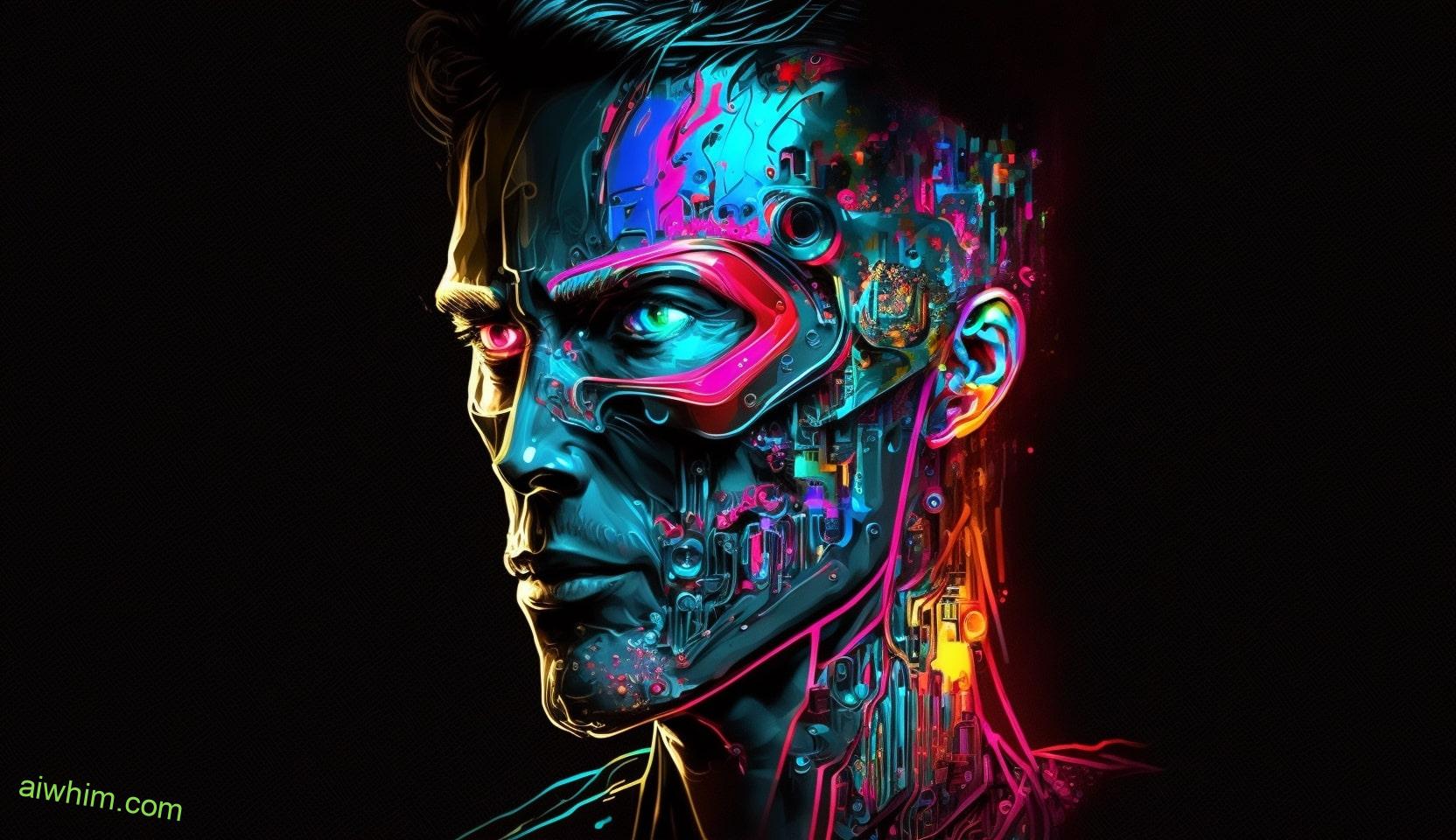
Conclusion
As you explore the ever-evolving landscape of home healthcare, one thing becomes clear: AI is making its presence known. The rise of artificial intelligence brings both benefits and limitations to the field, but fear not, human home health aides! Instead of replacing you, AI serves as a powerful tool to enhance your capabilities.
It acts as a guiding light, illuminating the path towards better decision-making and support. Embrace this collaborative approach, where man and machine unite to provide unparalleled care and compassion.
Together, you’ll create a symphony of healing that will resonate through the job market for home health aides.

